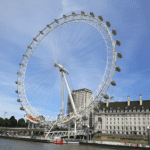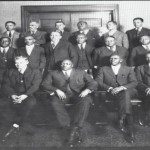Elie Wiesel died one year ago at the age of 87. A ghastly genocide, one that destroyed millions of Jews, gypsies, and gays, should have killed him seven decades earlier. But he survived and became a witness who wrestled with existential questions about life, death, humanity, and God. Wiesel’s Job-like wrestling with God is, in fact, one of the key motifs of his memoir Night. The narrative begins with a description of a youth’s easy faith in God. He is... Read more

















